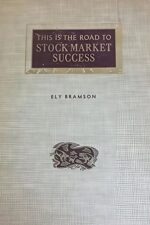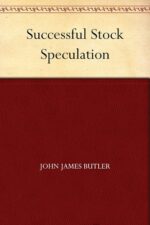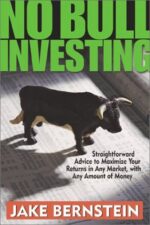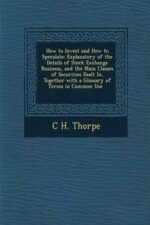Mastering Trading Stress: Strategies for Maximizing Performance
$19.24
In Mastering Trading Stress, performance coach Dr. Ari Kiev delivers a powerful and practical guide to managing the psychological pressures of professional trading. Drawing from decades of experience coaching hedge fund managers and institutional traders, Kiev reveals the mental frameworks and behavioral strategies used by elite performers to maintain focus, discipline, and confidence under intense market conditions.
This book bridges the worlds of trading and performance psychology, showing how fear, pressure, and self-doubt can sabotage even the best technical strategies. Kiev presents actionable tools for overcoming emotional reactivity, managing drawdowns, and creating a sustainable mindset for long-term profitability. Through case studies, exercises, and structured routines, he teaches traders to reframe risk, handle uncertainty, and transform stress into strategic focus.
Mastering Trading Stress is not about eliminating stress—it’s about leveraging it as a source of awareness, adaptability, and performance. For traders aiming to unlock their peak potential, this book serves as a psychological blueprint for clarity and resilience in the chaos of the markets.
✅ What You’ll Learn:
- How to identify and manage the root causes of trading stress
- Methods for developing emotional resilience and mental discipline
- Practical techniques for handling drawdowns, volatility, and uncertainty
- How to shift from reactive to proactive trading behavior
- The use of journaling, visualization, and cognitive reframing for performance growth
- Tools for maintaining balance and confidence through trading’s ups and downs
💡 Key Benefits:
- Gain control over stress and emotional volatility in trading
- Improve focus, confidence, and execution consistency
- Build mental frameworks for handling high-pressure decision-making
- Learn how to recover from mistakes and maintain peak performance
- Develop a long-term, sustainable mindset for trading success
👤 Who This Book Is For:
This book is essential for traders, portfolio managers, and active investors who struggle with the mental challenges of performance under pressure. It’s particularly suited to professionals seeking a structured psychological framework to complement their technical skills, enabling them to trade with confidence, clarity, and control.
📚 Table of Contents:
- The Nature of Stress: What Is Stress and Why Is It a Problem?
- The Emotions of Stress: What Negative Emotions Are Experienced as a Result of Stress?
- The Dangers of Trading under Stress: How Do Attempts to Handle Stress Create Problems for the Trader?
- How Fear Inhibits Mastery: Can You Learn to Lessen the Central Emotion of Fear?
- The Consequences of Negative Emotions
- Personalities and Stress
- Ego and Obstinacy
- Fear and Failure
- Perfectionism and Paralysis
- Failing to Manage Risk
- Failure to Dig Deeper
- Failures in Shorting
- Learning to Live with Stress
- Exercises and Practical Applications
Mastering Trading Stress: Strategies for Maximizing Performance By Ari Kiev
| Author(s) | |
|---|---|
| Product Type | Ebook |
| Format | |
| Skill Level | Intermediate to Advanced |
| Pages | 224 |
| Publication Year | 2008 |
| Delivery | Instant Download |
4 reviews for Mastering Trading Stress: Strategies for Maximizing Performance
Only logged in customers who have purchased this product may leave a review.










Patrick Humphrey (verified owner) –
I knew Dr. Kiev, even worked with him at one point. I am not sure how this book came to be given his date of passing, but I am not sure it’s the best representation of his work.
Sevyn Hill (verified owner) –
Excellent read and an opportunity to look at your emotions through someone else’s experiences. I recommend this book to anyone with roller coaster emotions and want a better understanding about those emotions. It’s a book about traders, which is why I bought the book, however applies to life’s everyday situations.
Isaac Whitehead (verified owner) –
That’s what Brett Steenbarger stated in his book Psychology of Trading.
The main purpose of this book is not to help you to make more money but to help you to deal with stress.
When I read the first pages of Mastering Trading Stress I thought Great, a sequel to Psychology of Trading. It’s even the same size in the book shelf.
Kiev explaines all the varieties and levels of Stress. And yes, it’s really interesting. I thought it might be useful to know where my trading stress comes from. But I’ve found once you’re in the game or battle or whatever you want to call it; you FORGET about all this. That’s why markets are anti-therapeutic.
This book aims toward fund managers and institutional traders since all the guys he’s interviewing make millions, lose millions, and trade positions of about some million shares. It’s not like Vadym Graifer discussing scalping where you get out after momentum fades (that is, after a move of say 13 cents!).
And then at the end of the book, there are the tips about how to deal with stress: I say; nothing special. Long sleep, exercise, healthy diet, etc… you can find this kind of advice in any kind of book about trading or psychology or stress.
I am really pondering if shall rate this book three or four stars because there actually ARE some really useful informations and great interviews in it.
But let me quote some passages to show why I give it only 3:
The Nature of Stress
Personality Factors
p.8
After being a bit stressed out for several weeks, Albert made a conscious effort to stay focused, to spend fewer nights out on the town, and to take some time off and prepare for the end of the year.
The Emotions of Stress
Anger
p.27
[…..]He was also annoyed at not being included in the loop regarding new ideas in venture capital, and by not having more than a very small percentage of commission dollars being allocated for the research process.
Making a conscious effort to stay focused, he went out fewer nights and took some time off to prepare for the end of the year.
So after that passage I had to force myself to read this book to the end.
Still, I’ve found that this was the only flaw.
I can recommend this book if you are interested in psychology generally and want to know why you and other people act in certain ways. Maybe it does help you, it didn’t help me.
If you’re an institutional trader buy this book right away. Ari Kiev speaks your language. You won’t waste your time reading it nor your money.
For a more effective way how to deal with stress I’d like to recommend Morita therapy. If you went to college you probably heard about it. Otherwise you can learn about it in the world wide web. Or read Trade with Passion and Purpose by Mark Whistler.
Journi Cobb (verified owner) –
This was a suggested read by Tod Mitchell of Trading Concepts. And all trades need to read it